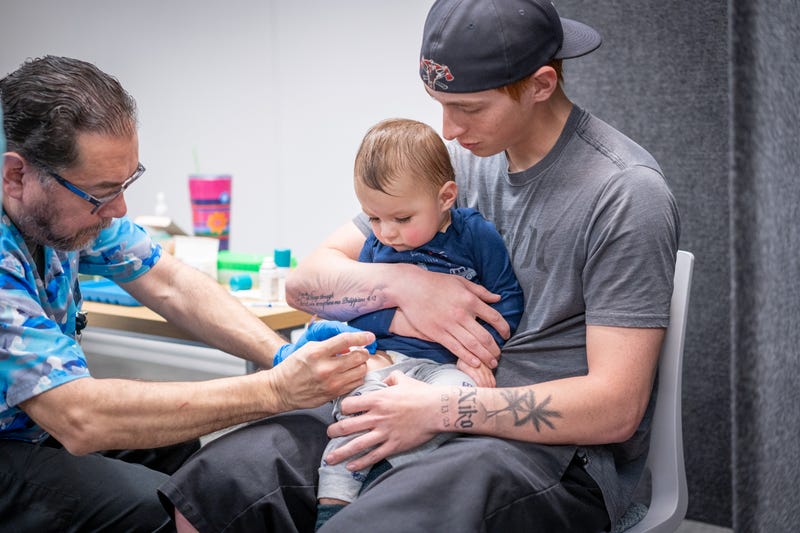
A virus long thought to be well under control is in danger of spreading in New Orleans once again, with potentially deadly consequences. Recently, a passenger with measles traveled through Louis Armstrong International Airport in New Orleans and could have potentially spread the virus to others. Dr. Fred Lopez, LSU Professor of Medicine in the section of Infectious Diseases, warns that, with low vaccination rates in the area, measles could spread quickly if an infected person comes into contact with other unvaccinated people.
Last year, three people in Louisiana were diagnosed with measles. A third case was recently reported this year as well. It’s a troubling trend for a serious ailment that was on the verge of elimination a few decades ago. In 2025, there have been over 1,600 cases measles cases reported in the United States. That’s the most since the year 2000, when measles was declared “eliminated” from the US. The carrier of the virus in this instance apparently returned from an international flight at MSY after contracting the measles abroad. Dr. Lopez is concerned that a great many people within the airport may have been exposed and are at risk of complications if they contract it. “The issue with measles is that it’s just so contagious,” Dr. Lopez emphasized. “The estimate is that, if you’re not immune to the measles because you’re either unvaccinated or haven’t had measles in the past, 90% of people without that immunity will contract the virus just from being around somebody with it,” he went on to stress.
Another worrisome factor to consider in the possible spread of the virus at Louis Armstrong International Airport is that the virus has a long lifespan, which can allow it plenty of time to find potentially vulnerable hosts. “The virus can stay in the air for up to two hours after the person who is infected with measles leaves the room or the area,” Dr. Lopez points out. “That makes it particularly contagious to people who do not have immunity against measles. It’s a public health issue, so I’m glad the Health Department has made an announcement about this individual so, if people have the potential for exposure, they can reach out to their healthcare provider and confirm that they’ve been vaccinated and are not going to develop measles if they have actually been exposed,” he went on to say. Dr. Lopez urges anyone who has concerns about their possible exposure to confirm with their healthcare provider that they have the appropriate vaccinations.
While recent years have seen an anti-vaccine sentiment growing, Dr. Lopez made sure to emphasize how preventable the spread of measles actually is. “Anyone who has gotten the universally recommended vaccine has 93% protection with one dose and 97% protection with two doses. It’s an extremely effective vaccine, and even in the rare case that you do develop measles after being vaccinated, the disease is much more likely to be mild in terms of its presentation and complications,” he pointed out. Those complications can include diarrhea and ear infections on the minor side. However, the more extreme complications that can develop from contracting measles include pneumonia, brain swelling, hospitalization, and roughly 1-3 out of every 1,000 people diagnosed with measles will die from it.
